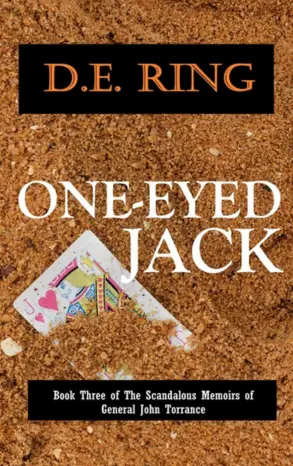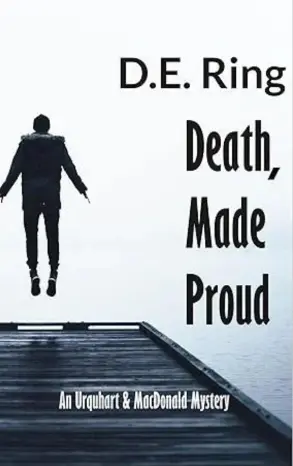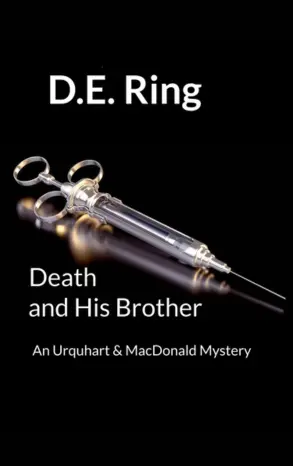
Urquhart & MacDonald series
Solve compelling cases with this iconic detective duo.
JACK TORRANCE SERIES
Journey through time with thrilling historical narratives.
Assortment Box
Unique tales that entertain, enlighten, and inspire.
Join the DB Club -- free access to short stories and newsletter
Hear the Story, Feel the Adventure
D.E. Ring’s Audiobooks: Mystery, Drama, and Wit—Anywhere, Anytime.

Have a quick listen. It's free!
Urquhart & MacDonald series
The MacDonald and Urquhart mysteries build a sense of the community. Time passes and we get to know the residents of Barrachois, their joys, their fears, their secrets. Old characters pop up. New characters are introduced. I want to create a place you’d like to re-visit – not just for meeting old friends, but for getting to understand how living changes us all.
The Price of Peril (Spring 2026)
Coming soon:
Urquhart & MacDonald´s Latest Release
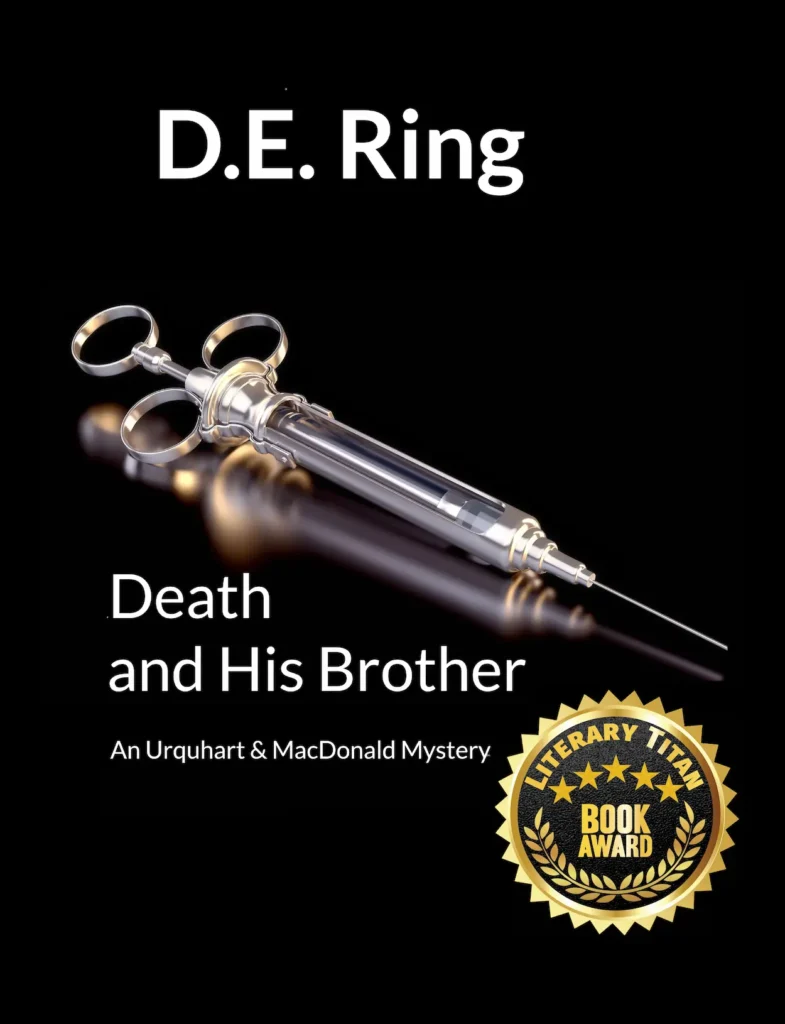
Death and His Brother
A sleeper train rushes headlong toward what was to be the dawn of a joyful holiday weekend. But both crew members are unconscious, the passengers asleep. Nothing will prevent a crash. Emergency crews can only watch in desperation.
This is no accident. Someone is meant to die.
Surrounded by a swirl of bright summer fun, Urquhart and MacDonald are pulled into a dark mystery of avarice, secrets, and bitter rivalries.
Death and His Brother's Reviews
The Scandalous Memoirs of General John Torrance
The memoirs of General Torrance begin in 1880, when he was just 20 years old and about to be swept up and into a world of danger, money, and intrigue. Jack is an unlikely addtion to the British Intelligence service, but he’s game for just about anything. And that’s just what happens over a lifetime of adventuring.
Ottawa, London, Cairo, Khartoum, Berlin, New York, Moscow, Delhi, Peking – he is sent to them all and more. From the last cavalry charge to the Cold War, an intelligence agent is always there. And it’s often Jack.
We know how small today’s world can be; it was much smaller then. As Jack attests, it was powerful people – with their egos, impetuosity, lasciviousness, lunacy, and bravery – who stumbled the modern world into being.
John Torrance´s Latest Release

One-Eyed Jack
Book Three of the Scandalous Memoirs of General John Torrance
After an unexpected and very personal attack, Jack begins to question his chosen career. Who is really an enemy? Who can really be trusted? Jack’s been lucky so far, but learning the benefits of a little sober thought can be a life-saver. And so it turns out.
The future has been foretold. A guide – the Mahdi – will free Soudan, free Egypt, and topple the corrupt Ottoman Empire. Soudan falls to the Mahdi. General Charles Gordon arrives in Khartoum to evacuate the besieged Egyptians and Europeans, but can’t get out. Fuelled by jingoism, the English mount an expedition to save Gordon. In advance goes Jack – a wild card, a One-Eyed Jack – to reason with two madmen, Gordon and the Mahdi, and get out alive.
One-Eyed Jack´s Reviews
Prairies Book Review
Latest Releases
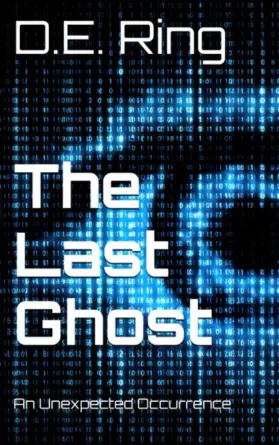
The Last Ghost
Joshua Stewart is a young man with a passion for the future – for new technology, for understanding what is to come, and for taking business advantage of both. Her is personable, bright, and makes connections easily. He achieves material success far beyond his years but it comes at a heavy price, one he thinks he can ignore.
Josh’s family dwindles away. His friends become his employees. His social life becomes nocturnal and empty of real meaning. He leads an otherwise solitary life, making more money than needed, in an existence driven and sustained by every modern innovation.
Then comes an unexpected occurrence, one that radically changes Josh’s perspective and purpose.
The Last Ghost´s Reviews
The Author

D.E. Ring grew up in small towns, where characters still tell their stories with context everyone understands. Creating that depth of context over a series of novels – that’s the goal of the Urquhart and MacDonald Murder Mystery series. The first books in the series, Death of the Limping Man, Death in the Offing, and Death of the Dancing Doll, were published in 2023 and Death in Secret and Death, be Proud, were published in 2024. Death and His Brother is scheduled for Spring, 2025.
His second series of books, The Scandalous Memoirs of General John Torrance, is an historical adventure series about the birth of our modern world, with its comedy, desperation, tragedy, and all-too-human predictability. The series starts with Jack the Lad (published 2023) and Modesty Jack (2024). The third volume, One-Eyed Jack is scheduled for release in late 2024.
Modesty Jack was awarded the Literary Titan Book Award in July of 2024.
With a degree in English from Western University, D.E. is a full member of Crime Writers of Canada and Playwrights Guild of Canada. He is also a member of Equity, the actors’ union. Having been a professional actor and director gives him handy skills when it comes to narrating his own audiobooks.
Reviews
Let's Chat
I am interested in hearing from you – your questions or comments or suggestions are always welcome. I will write back just as soon as I can.
Request Reprint Permissions
Follow me







